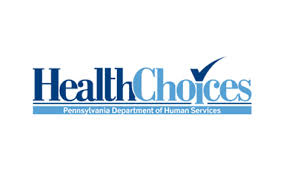PA Improves Access to Contraceptives
Citing the challenges and risks associated with unplanned pregnancies that occur within two years of a delivery, Pennsylvania’s Medicaid program is making long-acting contraceptives more readily available to program participants.
 Beginning on December 1, Medicaid will pay for long-acting contraceptives administered after delivery and also will increase payments to doctors who provide those contraceptives. Currently, those costs are generally borne by hospitals in the lump-sum payment Medicaid makes for deliveries.
Beginning on December 1, Medicaid will pay for long-acting contraceptives administered after delivery and also will increase payments to doctors who provide those contraceptives. Currently, those costs are generally borne by hospitals in the lump-sum payment Medicaid makes for deliveries.
Learn more about the state’s new policy for encouraging the use of contraceptives among Medicaid beneficiaries who have delivered babies in this Lancaster Online article.

 Included in this edition are stories about problems older adults are encountering when they seek to enroll in the state’s Aging Waiver program; an update on the implementation of Community HealthChoices, the new state program of managed long-term services and supports for qualified seniors; upcoming Medicare changes and enrollment and application deadlines; coverage of diabetes testing supplies for dual eligibles; new state guidelines addressing access to treatment for mental health conditions and substance abuse disorders; and more.
Included in this edition are stories about problems older adults are encountering when they seek to enroll in the state’s Aging Waiver program; an update on the implementation of Community HealthChoices, the new state program of managed long-term services and supports for qualified seniors; upcoming Medicare changes and enrollment and application deadlines; coverage of diabetes testing supplies for dual eligibles; new state guidelines addressing access to treatment for mental health conditions and substance abuse disorders; and more. Since that time the state’s Medicaid expansion has added 670,000 Pennsylvanians to the ranks of the insured, with others purchasing insurance through the federal health insurance marketplace.
Since that time the state’s Medicaid expansion has added 670,000 Pennsylvanians to the ranks of the insured, with others purchasing insurance through the federal health insurance marketplace. HealthChoices, Pennsylvania’s Medicaid managed care program, seeks to purchase 7.5 percent of Medicaid services through value-based purchasing arrangements in calendar year 2017, 15 percent in 2018, and 30 percent in 2019. The Hospital Quality Incentive Program seeks to facilitate achieving these goals.
HealthChoices, Pennsylvania’s Medicaid managed care program, seeks to purchase 7.5 percent of Medicaid services through value-based purchasing arrangements in calendar year 2017, 15 percent in 2018, and 30 percent in 2019. The Hospital Quality Incentive Program seeks to facilitate achieving these goals. In making these recommendations, CMS seeks to make greater use of managed long-term services and supports and home- and community-based services when serving individuals who might otherwise need costly nursing home care.
In making these recommendations, CMS seeks to make greater use of managed long-term services and supports and home- and community-based services when serving individuals who might otherwise need costly nursing home care.
 The 20 centers of excellence, which will be licensed by the state’s Department of Drug and Alcohol Programs, are expected to be open by October 1.
The 20 centers of excellence, which will be licensed by the state’s Department of Drug and Alcohol Programs, are expected to be open by October 1.